Azolla replacing expensive livestock feed

Sustainable agricultural practices are the primary focus of the Sabal programme in the regions of Khalwa block of Khandwa – Madhya Pradesh and Chikkaldhara block of Paratwada – Maharashtra to address the chronic malnutrition and hunger in the region. It helps to ensure self-reliance with local, alternative measures that will free poor and marginal farmers from financial burden. Farmers were encouraged to prepare organic pest and nutrition management solutions for which they required cow urine and cow dung to ensure large scale production of bio-manure solutions to treat their farmlands.
However, over the last few years, due to the unavailability of fodder and restrictions from the forest and government departments on open grazing, the Korku community were forced to sell their cattle and only keep a few oxen for agricultural purposes. Due to the inability to graze their animals, the farmers were unable to meet the nutrition requirements of the animals and the poor families were unable to purchase the expensive supplementary feeds to plug the nutrition gaps of their livestock.
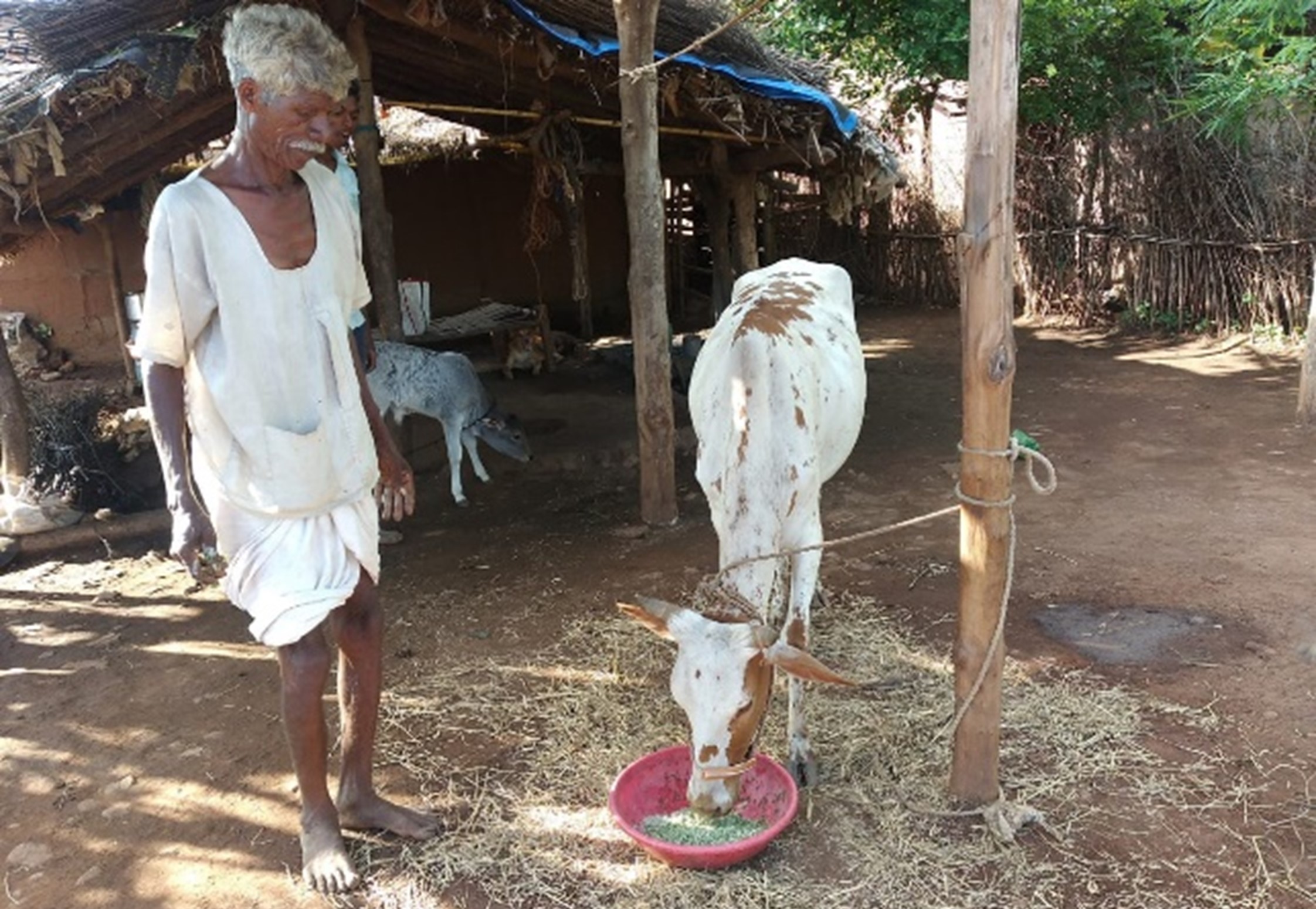
Considering the challenges in livestock promotion and management, the Sabal programme introduced azolla or mosquito fern cultivation among the Korku farmers. The ferns contain a high percentage of protein, ranging between 25% to 30%, and other essential minerals like iron, calcium, magnesium, phosphorus, copper, and manganese with appreciable quantities of amino acid and probiotics.
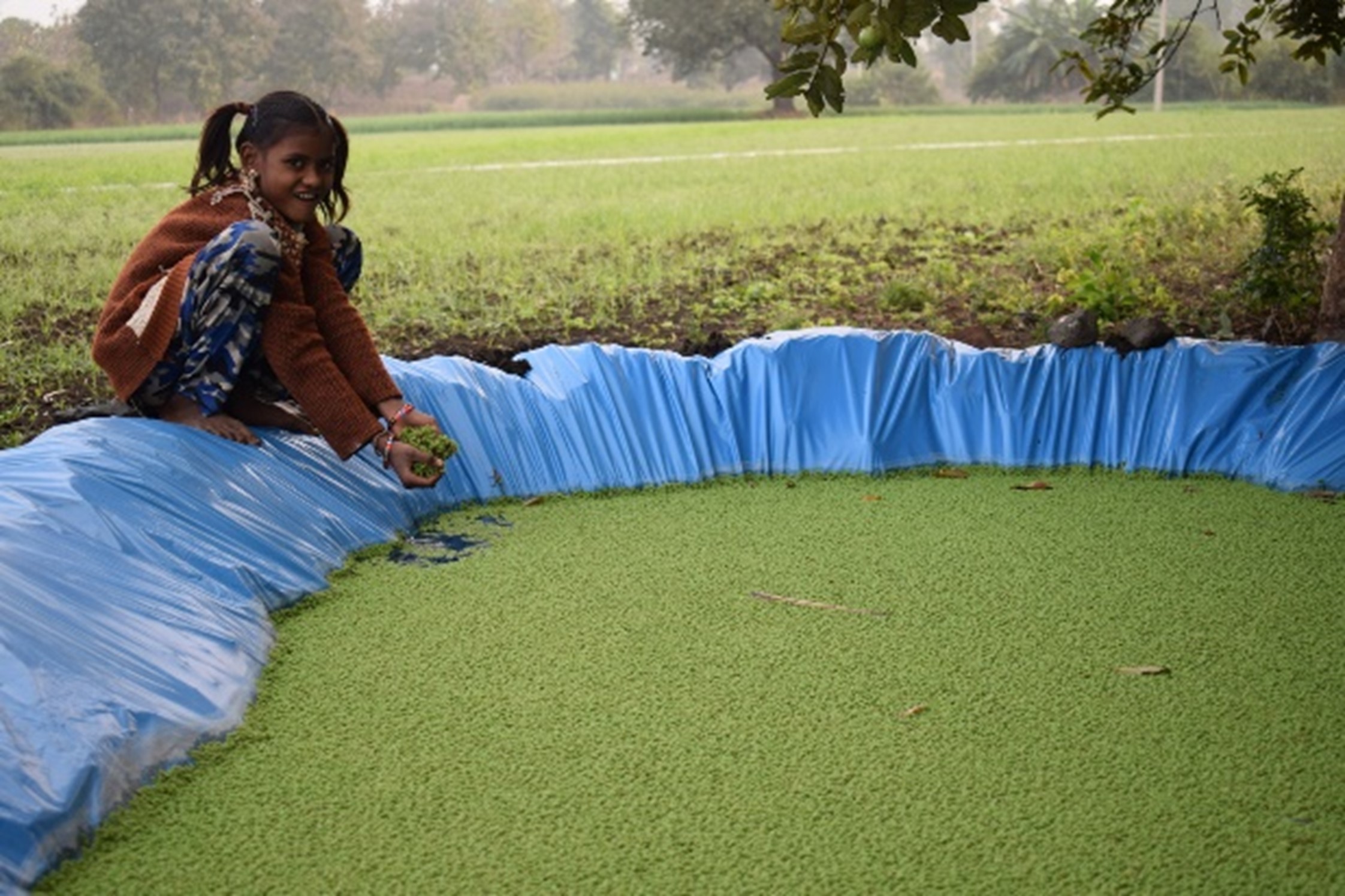
Azolla has unique abilities, it can be used as a manure, water purifier and livestock feed which improves soil health improves fertilizer use efficiency, fixes atmospheric nitrogen, biomass production, maintains soil moisture. Azolla is considered as one of the good livestock fodder. It is recognized as the cheapest & richest source of protein because of its ability to synthesize from a wider range of unlimited and readily available primary resources & make the necessary minerals to the crops.
As a response to this initiative, Sabal farmers have set up 223 Azolla units and 27 grass beds for fodder, which support harvesting a monthly average of 68.57 kilos of feed for their cattle and poultry. These beds were developed voluntarily by the Korku farmers after realising the increase in production of cattle milk and eggs from the poultry. The cultivation of the Azolla fern has helped the farmers to invest in livestock while saving more than Rs. 500 to Rs. 600 in the purchase of supplementary feeds.
Upcoming News
Sangam women producers group turns local trade into economic resilience
Kusumkasa village in Rajnandgaon district is quietly reshaping how rural women earn, trade, and lead....
LEARN MOREKhushaal Bachpan review reinforces community-led action to advance child well-being
The half-yearly review of Caritas India’s Khushaal Bachpan Programme has marked a decisive moment in...
LEARN MOREStrengthening Grassroots Democracy through Women-Led Good Governance
Democracy at the grassroots grows stronger when citizens, especially women, actively participate in local governance....
LEARN MORE
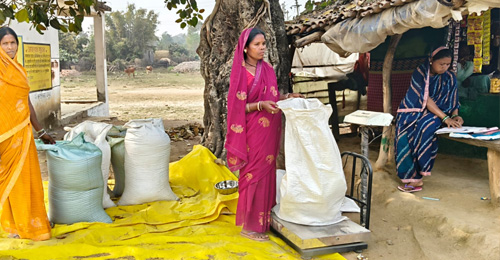
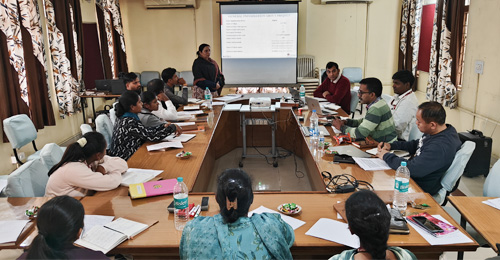
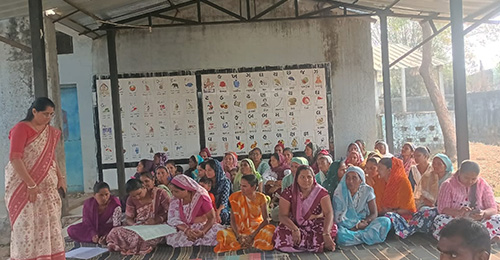
 91 -11 - 2336 3390
91 -11 - 2336 3390  director@caritasindia.org
director@caritasindia.org 